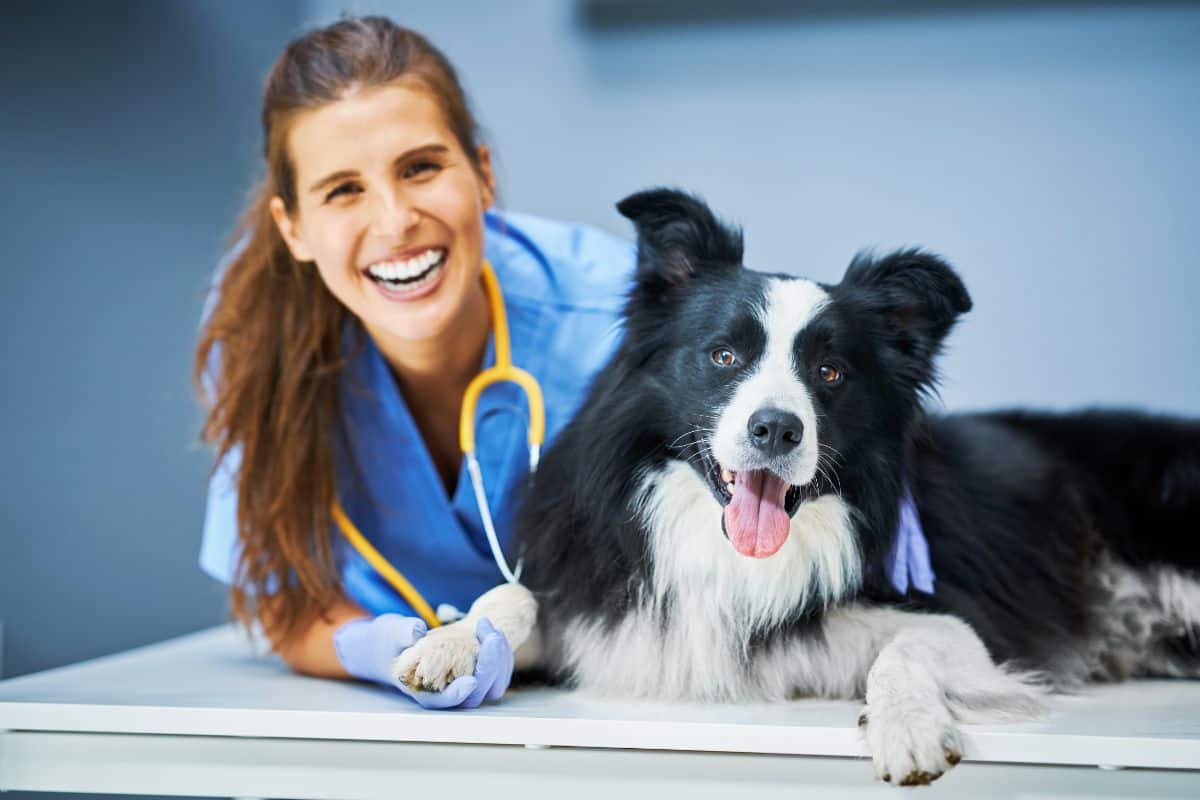Veterinary Technician: Job Description, Duties, and More

Are you captivated by the world of animal healthcare and aspire to play a more advanced role? If so, the journey of a veterinary technician might be the ideal path for you. In this comprehensive guide, we'll explore the intricacies of being a vet tech, shedding light on their job description, duties, requirements, qualifications, responsibilities, and the promising career this profession offers.
Interested in other pet careers? Check out our list of 40+ animal jobs.
What is a Veterinary Technician?
A Veterinary Technician, often referred to as a vet tech, is a highly skilled professional who works alongside veterinarians, applying their expertise to ensure the health and well-being of animals. Vet techs are integral to the functioning of veterinary clinics, participating in a myriad of responsibilities that go beyond basic care. Licensed vet techs considered a step above a vet assistant. Let's delve into the key aspects of their job:
- Medical Procedures Assistance: Vet techs actively participate in medical procedures, including surgery assistance, anesthesia monitoring, and diagnostic imaging. Their advanced training enables them to handle complex clinical tasks.
- Laboratory Work: Veterinary technicians conduct various laboratory tests, such as blood work and urinalysis, contributing essential diagnostic information for veterinarians to make informed decisions about a patient's care.
- Patient Care and Monitoring: Vet techs play a pivotal role in post-operative care, monitoring vital signs, administering medications, and ensuring the overall comfort and recovery of animals.
- Educating Pet Owners: Vet techs engage with pet owners, providing valuable information about post-treatment care, medication administration, and preventive health measures, fostering a collaborative approach to animal well-being.
Requirements and Qualifications
Becoming a veterinary technician involves a combination of education, hands-on training, and specific attributes. Here's a breakdown of the key steps:
- Education and Training: A vet tech typically holds an associate degree in veterinary technology from an accredited program that usually lasts 2 years. Once completed, they are required to sit for a national licensing exam. Alternatively, a vet assistant program only lasts a few months and does not require a license to practice.
- Skills and Attributes: Veterinary technicians need a strong foundation in science, effective communication skills, and a genuine compassion for animals. They should be detail-oriented, capable of multitasking, and able to handle the emotional aspects of working in animal healthcare.
- Certification and Licensure: Most states require vet techs to be licensed. Achieving certification through the Veterinary Technician National Examination (VTNE) is a common requirement. Once completed, depending on their state, they will earn a title of “Registered (RVT)”, “Licensed (LVT)” or “Certified (CVT)”. Continuing education is often necessary to maintain licensure.
Now that you understand the educational and skill requirements, let's explore the multifaceted responsibilities and promising career avenues that await veterinary technicians.
Duties and Responsibilities
The role of a veterinary technician is both challenging and rewarding. Here's an in-depth look at their primary duties:
Participating in Medical Procedures
- Surgery Assistance: Vet techs assist in surgical procedures, preparing the operating room, handling instruments, and providing support to veterinarians during surgery.
- Anesthesia Monitoring: Monitoring anesthesia during procedures is a critical responsibility, ensuring the safety and well-being of animals under sedation.
Conducting Laboratory Tests
- Blood Work: Vet techs collect blood samples, conduct hematological analyses, and interpret results to aid in diagnosing various medical conditions.
- Diagnostic Imaging: Performing and interpreting diagnostic imaging, such as X-rays, is crucial for identifying internal issues in animals.
Patient Care and Monitoring
- Post-operative Care: Vet techs oversee the recovery of patients, administering medications, monitoring vital signs, and providing comfort to animals post-surgery.
- Administering Medications: Vet techs are responsible for administering medications as prescribed by veterinarians, ensuring proper dosage and monitoring for any adverse reactions.
Educating Pet Owners
- Post-Treatment Care: Vet techs educate pet owners on post-treatment care, including medication administration, wound care, and signs of potential complications.
- Preventive Health Measures: Offering guidance on preventive health measures, nutrition, and routine care empowers pet owners to maintain the well-being of their animals.
With these crucial responsibilities, what career opportunities can veterinary technicians explore, and what does the job outlook entail?
Career Prospects
Veterinary technicians have diverse opportunities for growth and specialization:
Specialization Opportunities
- Specialized Clinics: Vet techs can specialize in areas like emergency and critical care, dentistry, or anesthesia.
- Exotic Animal Care: Focusing on non-traditional pets, working with reptiles, birds, and other exotic animals.
Job Outlook and Growth in the Field
The demand for veterinary technicians is robust, with a projected job growth of 21% from 2022 to 2032, according to the U.S. Bureau of Labor Statistics. As the importance of preventive care and advanced medical procedures for animals continues to rise, so does the need for skilled vet techs.
Salary and Compensation
Salaries for veterinary technicians vary based on factors such as location, experience, and specialization. According to the Bureau of Labor Statistics, the median annual wage for vet techs in May 2022 was $38,240.
As you consider this fulfilling career path, you might have questions about the role of veterinary technicians. Let's address these in the Frequently Asked Questions section.
Frequently Asked Questions
While both roles support veterinarians, veterinary technicians undergo more extensive education, typically earning an associate degree. Vet techs perform advanced medical procedures, assist in surgeries, conduct laboratory tests, and often require licensure. Veterinary assistants focus on basic animal care, administrative tasks, and do not require the same level of formal education. Learn more about vet techs versus vet assistants.
Becoming a licensed veterinary technician usually requires completing an accredited veterinary technology program, which typically results in an associate degree. Some states may also require passing the Veterinary Technician National Examination (VTNE) for licensure.
Yes, veterinary technicians can work with both small and large animals. Their versatility allows them to contribute to the care of companion animals as well as livestock and other large species.
Absolutely, veterinary technicians can pursue specialization through additional education and training. Specializations can include emergency and critical care, dentistry, anesthesia, and more. These specializations open up opportunities for career advancement and focused expertise.
Veterinary technicians are essential in upholding animal welfare by providing advanced medical care, assisting in surgeries, and conducting diagnostic tests. Their expertise ensures that animals receive quality healthcare, contributing to overall well-being.
As a veterinary technician, you'll embark on a dynamic and fulfilling career, leveraging advanced skills to contribute significantly to animal healthcare. The journey involves not only medical expertise but also a deep commitment to the welfare of animals. If you're ready for a career that combines compassion with advanced medical knowledge, consider becoming a veterinary technician.
If the idea of earning an associates degree and you want a quicker, more affordable, path to working in the veterinary field, consider becoming a vet assistant. This career path offers similar opportunities for a fraction of the cost, and vet assistants can earn in many cases as much as a vet tech. The Academy of Pet Careers offers a 5 month comprehensive vet assistant program to get you into a veterinary career in no time.
 Author - Joseph Schifano
Author - Joseph Schifano
Joseph Schifano is the owner and President of The Academy of Pet Careers. With over 20 years of experience working in the pet field, managing large scale pet care businesses, he has experience in every facet of the industry. Joseph's focus is primarily on the business of pet care but his passion is in understanding animal behavior how a dog's brain works so we can improve the care we provide as pet professionals. He is a huge advocate for Pet Empowerment and Force Free training methods. Read more in Joseph's full bio.
